Blockchain and the environment
Even if a US President and various lobby groups are vocal climate change deniers, the focus on the environment and sustainability is as intense globally as ever.
One intriguing question is what role can blockchain play – either in terms of individual industries efforts to become more sustainable; or on a broader level to tackle pollution levels?
Given the breadth of this subject, it make sense to break it down into specific areas.

An industry like forestry could really benefit from the greater transparency blockchain offers.
Forestry
Blockchain offers tamper-proof databases for any kind of information shared by a community but owned by no one. For an industry like forestry not always known for reliability of information, such levels of transparency represent progress.
A recent report in Bitcoin Africa illustrates how comprehensive biological data from forests could be securely recorded and given a digital fingerprint that is completely traceable. Anytime data is used or sold, the transaction would be recorded on the blockchain for all stakeholders to see.
Jack Bwana a trade, transport and supply chain consultant, believes blockchain could represent major progress for the forestry industry. Specifically referring to Kenyan forests, he has called on the Kenya Forest Research Institute to map all complex life in Kenya’s forests by sequencing the genomes of the forests’ unique plants, animals, and microbes. This biological ‘big data’ could then be made available for scientific and/or commercial use to ensure that profits generated from the forest are shared equally.
Inclusive bio-economy
Writing in Business Daily Africa, Bwana suggests this could open up a new bio-economy that would be much more profitable, inclusive and sustainable, than existing forest industries.
Being able to track whoever accesses the bio-data and what it was used for means accountability would be clear. And by ensuring more profits go back to the local area, Bwana believes this would incentivise the local community to play a more active role in preserving their forests.
In principle, the theory is great but in practice it could prove challenging in terms of who takes the lead – central or regional government? And with regard to high-level transparency, how keen would Kenyan wildlife and forest associations be to work together and share data freely?
It may be that blockchain in forestry is a slow-burn at first as organisations become acclimatised to the notion of data sharing. However, if greater profits can be realised and sustainability demonstrated, then we might see headway.
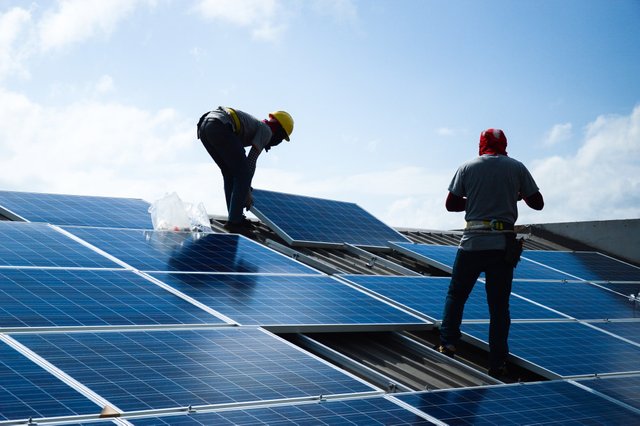
Blockchain has enabled users to buy, sell or swap excess solar energy
Energy
Blockchain technology could have a huge impact on how energy and utility markets operate – impacting both providers and consumers. For instance, it could address some barriers of entry to the energy market – allowing greater competition not just on cost, but on efficiency.
In 2016, in Brooklyn, New York, the owner of a roof solar panel sold a few kilowatt-hours of excess energy to a neighbour using an Ethereum blockchain smart contract. The transaction, via the Brooklyn microgrid, was made possible through the then start-up LO3 Energy.
While this in itself may have been a small contract; what it signalled was future possibilities and the opportunities to scale up. While blockchain technology in the energy sector is still in its infancy, in future we may increasingly see digital peer-to-peer platforms directly connect energy producers with users.
There have already been similar projects – for instance, in Perth, Australia blockchain has enabled users to buy, sell or swap excess solar energy with anyone connected to the Western Power network. Blockchain acts as the facilitator, allowing transactions to be recorded securely between two parties in a verifiable way.
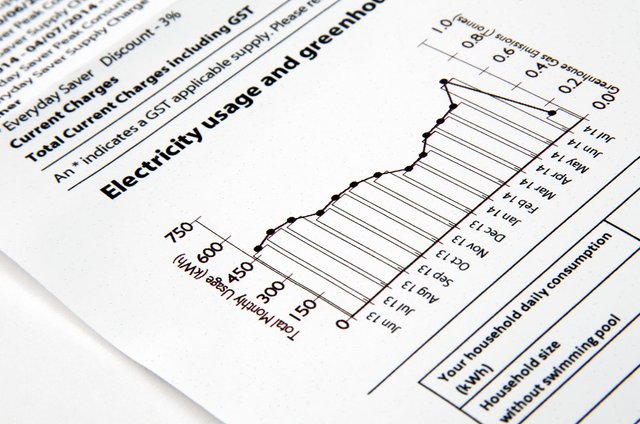
Blockchain should enable deliver more transparent and accurate managing of consumer energy bills.
Billing accuracy
Another change blockchain could introduce relates to billing and accounts. It should be able to deliver more transparent and accurate managing of bills with consumers able to see all activity on their accounts. Meter reading would likely become a thing of the past – with accurate bills based on actual rather than estimated usage.
Improved technology should mean precise energy consumption and service data, once again improving efficiency.
Essentially, what blockchain can do is increase industry competition (allowing new entrants from alternative energy sectors) leading to lower prices and more streamlined energy distribution. From a green perspective, reduced energy waste and a clearer focus on consumption levels from both utility companies and customers, represents progress.
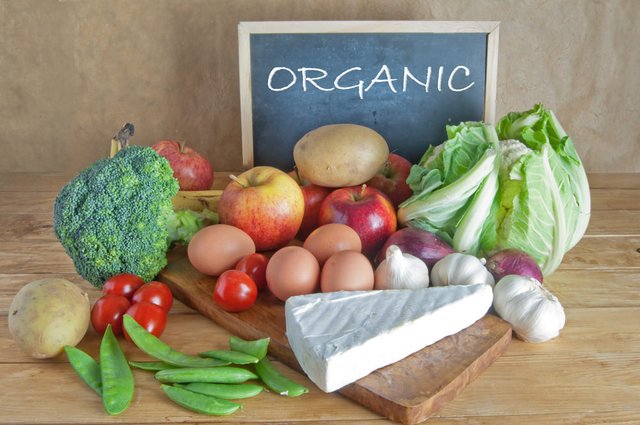
Blockchain can reveal to consumers how and where their food is produced, supplied and transported.
Organic food production
There was a time when organic food represented a tiny percentage of the retail market. Now every major supermarket offers an organic choice on almost every product, from milk and cheese to cereals and pasta sauces.
However, a string of fake ‘farm’ labels on food products and misleading information on goods that imply tenuous organic credentials, have created a feeling of distrust among consumers.
Understandably transparency in supply chains has become a major issue. Whereas in the past, consumers would have to take data relating to food freshness and organic nature at face value, there is an opportunity now to accurately track all info is there from farm to fork.
For those consumers who want to know exactly when and how their food is produced, supplied and transported – blockchain can provide the answer.
Organic food credibility
In the UK in 2016, the organic food accrediting body , the Soil Association, teamed up with start-up tech firm Provenance to pilot technology tracking the journey of organic food from farm to shop shelf. Shoppers were be able to tap their smartphones on packets of Eversfield Organics bacon on sale in select As Nature Intended stores, and instantly retrieve the product’s complete supply chain journey.
Blockchain technology was used to demonstrate what Soil Association Certification does at each step of the organic certification process in an interactive way.
If a consumer wants verification that a product has no artificial colours or preservatives, is produced free range, with no use of antibiotics and no genetically modified ingredients, then it can be provided instantly prior to purchase.

When you buy a tin of tuna in a supermarket there is a strong possibility it was unsustainably fished.
Fishy business
From a specifically ethical standpoint, responsible and sustainable fishing has long been a concern for consumers. When you buy a tin of tuna in a supermarket there is a strong possibility it was unsustainably fished. It is also conceivable it was caught, processed and canned by underpaid, exploited workers in Southeast Asia.
Even a claim of source ‘sustainability’ on the label is no guarantee as certifications can sometimes be faked.
Last year UK blockchain specialist Provenance set up a partnership with Co-op Food Stores to track fish and other food types.
Local fisherman sent text messages to register a catch. This created a new ‘asset’ on the blockchain. Each time a fish catch was sold to traders, processors, and ultimately the supermarket – the blockchain ID was sold with it. That digital identity tracks the audit information, verifying the fish were caught legally and sustainably.
Recycling
The amount of waste the world generates continues to rise. Waste management is expensive. And changing the habits of consumers to think about the impact of irresponsible disposal is often an uphill battle. Blockchain can help on both scores.
Incentivising people to collect recyclable waste via crypto-token rewards is one solution. Every recycling activity is registered on a blockchain, making the process transparent and secure.
Digital tokens can be credited to the wallets of those collecting and exchanged for other cryptocurrencies or local currencies. There are no intermediaries involved – the collector registers their activity on a mobile app and tokens are awarded accordingly.
The Blockchain Development Company (BCDC) has introduced schemes such as RecycleToCoin to encourage recycling of plastic bottles and aluminium cans. The blockchain-based solution exchanges recyclable waste for BCDC tokens at dedicated collection points. The tokens can then either be exchanged for an eGift Card or for other cryptocurrencies.
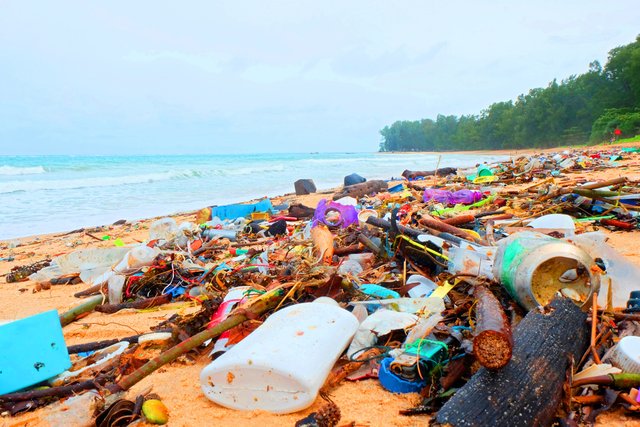
The Plastic Bank, is offering local people cash or vouchers in exchange for the plastic waste they collect
Plastic waste
Similarly, major global eco-ventures such as the IBM-backed Plastic Bank have introduced blockchain-powered projects where people can gather plastic from their oceans and shorelines and exchange it for cash.
For instance, in Haiti, The Plastic Bank, is offering the island’s residents cash or vouchers in exchange for the plastic waste they collect. This waste is then sent away to be recycled by global brands such as Schwarzkopf, Loctite and Persil.
The choice of Haiti is significant since it lacks recycling infrastructure. Rather than allow the waste to be washed into the sea and then cleaned up when it lands on European beaches, The Plastic Bank aims to stop it ever reaching the sea in the first place. And by not reaching the sea, marine life from plankton and krill to fish and whales are less likely to digest harmful microplastics. Ultimately this means there is less chance of microplastics working their way up the food chain to humans.
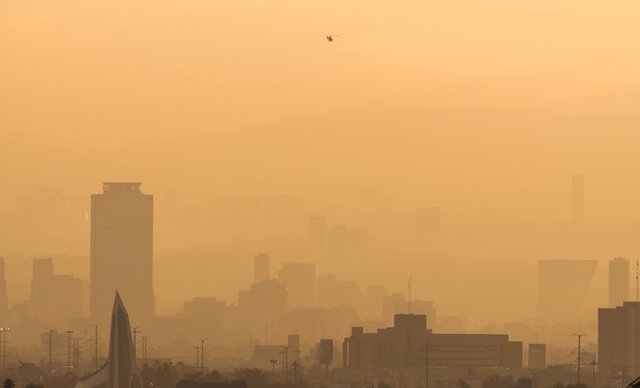
In some countries monitoring of air pollution is weak or the technology use to measure it is inadequate.
Air pollution
Record keeping on air pollution levels either by government bodies or by large corporations is not known for its accuracy or integrity.
In some countries monitoring is weak or the technology they use to measure pollution is inadequate. Often the data released is limited or worse still, not trusted.
A decentralized network of air pollution monitoring is one possible solution. Decentralized network endpoints are sensors owned by individuals, and include home installed sensors, personal devices (smart phones) and wearables devices. With blockchain technology, it is possible to connect all the sensors together to create a mesh network.
Each device relays data to the network and all the data generated is owned by the device user. The data can then be traded among the devices on a blockchain through smart contract powered micropayments. All data stored is public and tamper-proof, so if a company had a damning pollution record, they would not be able to hide it from the public or manipulate the data.
Of course, governments would still be responsible for enforcing policies and punishing companies who pollute. It is a disappointing reality that not all governments will be inclined to take a firm stance but at least blockchain will have introduced a greater level of transparency on the good, the bad and the ugly within any sector.
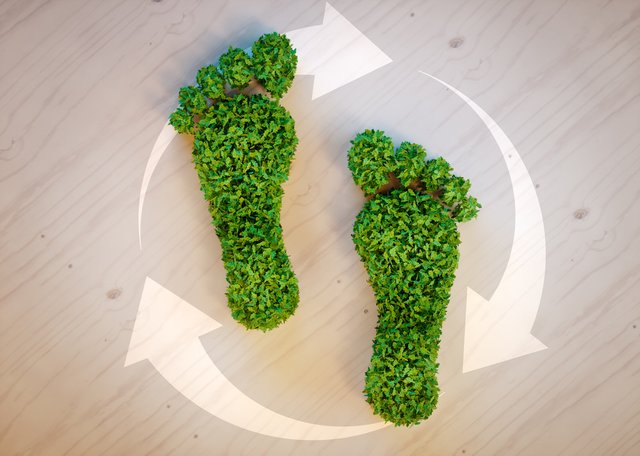
Cities such as Liverpool are taking action to reduce their carbon footprint.
Carbon trading
The term ‘carbon footprint’ meant nothing 20 years ago. Now it is a common theme for both governments, companies and individuals concerned about climate change.
One recent initiative that caught the eye was the City of Liverpool’s plan to use a blockchain technology platform to reduce its carbon footprint. Liverpool City Council wants it to become the first “climate positive authority” in the world by the end of 2018 and the first climate positive city by the end of 2020.
The council is partnering with the Poseidon Foundation to test a blockchain platform that will allow tokenized carbon credits to be exchanged.
They estimate the initiative could offset the city’s climate impact by more than 110%. As part of the strategy, the council is also installing 15,000 energy-saving LED streetlights across 2,000 roads in the city with the aim of reducing streetlight energy consumption by 82%
Environmental groups
We have looked at sectors and specific environmental initiatives that can benefit from the adoption of blockchain but what about those who force the pace of change – environmental groups? All environmental groups will benefit from improved access to verifiable, authoritative data in real time.
Funding too can be made easier. For instance, Greenpeace now accepts donations in bitcoin. This provides cost savings as opposed to credit card donations, no transaction fees apply to bitcoin.
Whether an environmental group such as Greenpeace or a multi-national such as IBM, blockchain clearly offers distinct benefits to environmental initiatives. But it relies on enthusiastic support within government, inside boardrooms and among the public. This remains a work in progress.
Text by Dave Burrows
Follow OpenLedger!